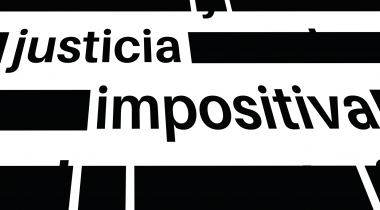
John Christensen ■ Tax havens harm our well-being and security

Image: NeoNazi_02″ by Chad Johnson is licensed under CC BY-NC-ND 2.0
This week we published a special edition of Tax Justice Focus on national security, guest edited by Jack Blum, Charles Davidson and Ben Judah. You can read their editorial here. In the coming days we will publish the five articles from this special edition, starting here with an article by TJN writer Nicholas Shaxson on the multiple ways in which tax havenry has undermined international and national security, worsening inequality and contributing to the rise of political extremism.
Tax havens harm our well-being and security
Nicholas Shaxson
Our beleaguered societies should learn a trick from the Weebles, an egg-shaped children’s toy popular in the 1970s which always righted itself after you pushed it over. As the advertising jingle put it: “Weebles Wobble But They Don’t Fall Down.” The secret was the weight in the toy’s base.

In this they reflected western societies at that time. A postwar order characterised by strong workplace protections, generous welfare provision funded by steeply progressive taxes, and effective curbs on concentrated corporate power meant that productivity gains were shared more or less equitably. Meanwhile, tight financial regulation curbed the ability of powerful financial interests to overrun the authority of democratic governments. This postwar order secured high levels of public support for liberal democracy. Since the advent of financial deregulation, however, power and wealth has become highly concentrated at the top end of the pyramid, and justifications for inequality have trickled down.
Not surprisingly, support for liberal democracy has frayed.[1]

As power and wealth concentrations have become ever more top-heavy, social cohesion and democracy have become pushovers. Illiberal and anti-democratic actors, domestic and foreign, are on the offensive, corrupting our institutions, our media and our political processes. Inequality on its own is toxic enough: historically it has overturned empires, dictatorships, theocracies and democracies, and at times led to war. As inequality spreads, the likelihood of bloodshed rises.
But the issues and mechanisms that the tax justice movement focuses on – tax havens, shell companies, offshore trusts, corporate tax cheat structures – are especially corrosive. The threats to our collective security lie on many levels, each more insidious and pernicious than the others.
First, most obviously, tax havens reward rich people at the expense of poorer people, worsening inequality and deepening schisms.
Second, tax havens corrupt markets, allowing tax cheats to free-ride on public services, and rewarding large corporations at the expense of small and medium enterprises, worsening the problems of monopoly and concentrated corporate power.
Third, many of these tools are about hiding. This has destabilising effects, inflicting damage on our cultural, political and economic institutions. Tax havens are hothouses for organised crime, helping criminals and oligarchs to penetrate the heart of many governments. Major revelations, from the 2016 Panama Papers to Tom Burgis’ new book Kleptopia, have exposed how British tax havens helped Russian oligarchs amass secret wealth (and power,) and how their fortunes merged with those of the post-Soviet organised criminal underworld such as Semyon Mogilevich, whose core talent has been “to slink [criminal] money around the world incognito.” Worse, tax haven secrecy enables bribes and illegal political donations to flow undetected, making it increasingly difficult to trust the integrity of everyone from the Prime Minister and the President down.
All this undermines citizens’ faith in state institutions that are supposed to protect public interest. By allowing individuals and businesses to operate outside the law, tax havens offend against the principle of civic equality: one rule for them, one rule for us corrodes the social fabric on which so much depends. Equally dangerous, with the reputations of both London and New York tarnished by being labelled as laundromats for kleptocrats and organised crime, the soft power diplomatic advantages that the UK and USA previously enjoyed from being able to project moral authority across the world have been washed away by the sea of scandals.
Britain’s tax haven network helped accelerate the slide of nuclear-armed Russia into gangsterism, posing severe security threats to Britain itself. Citizens around the world, from Saudi Arabia to Russia to Venezuela, have seen for themselves how their national treasuries have been looted, and the proceeds stashed by élites in western tax havens. This looting has fomented public distrust and rage.

Undoubtedly tax havens hurt the countries suffering the plundered outflows, but they also pose grave threats to the economies receiving the inflows. Western countries playing the tax haven game have created a hydra, a monster which has turned around to bite them.
Illicit financial flows pose a range of political threats to the inflow countries. It diverts political leaders and civil servants away from the public interest, towards secret, more nefarious personal ends. It throws a lengthening shadow over academic institutions, think tanks, commentators, celebrities, influencers and media. An OECD report described how tax havens allow political parties to set up secret branches disguised as think tanks or foundations, “sometimes referred to as ‘offshore islands’ of political parties.” Tax haven funds combined with offshore-based media moguls prepared the way for Britain’s Brexit campaigners, leading to the destabilisation of relations with key political and military allies.
Tax havens are corrupting our leaders, our institutions and our democracies, generating yet more rage among the citizenry. When the last global financial crisis hit, western leaders largely didn’t change their economic policies in response to democratic pressure for change: instead, they subverted democracy to keep the same élites in power, and doubled down. The Covid crisis may worsen matters.
Decades of deregulation have left financial markets awash with illicit money seeking pliant host countries. Tax havens prosper by relaxing laws, rules, taxes and law enforcement, creating a criminogenic environment in the name of financial freedom. In the accelerating “global race” to attract hot money, countries ‘compete’ by offering yet more tax cuts, more regulatory loopholes, and outright subsidies to global elites and powerful corporations.
A bigger problem, though, is the devil’s bargain at the heart of this global race-to-the-bottom. Oligarchs, despots, organised crime, and other owners of rootless financial capital are so heavily invested in London and New York that their threats to disinvest and switch their wealth to Zurich or Singapore or Panama, have real potency. The misguided quest to attract the world’s hot money puts tremendous, unaccountable, direct power into the hands of malign actors, domestic and foreign. If this isn’t a threat to our democracy and collective security, it is hard to know what is.
Criminality isn’t the only problem confronting ‘inflow’ countries. Lax banking regulation brought us the global financial crash, and will deliver more crashes. Large inflows of financial capital into London and Wall Street generate a ‘brain drain’ into offshore-focused finance, damaging other economic sectors. Those same inflows push up local prices and the exchange rate, rendering it harder for manufacturers and producers to compete against imported goods, while also making housing unaffordable for young people. These problems, and the collective internal security risks they foment, are the essence of the finance curse.
The agencies tasked with protecting our collective national security, many steeped in countering terrorists radicalised by the plundering of their own countries in the Middle East and Africa, now need to recognise the scale of the threat to democracy and social stability emanating from kleptocrats, oligarchs, and organised crime. And they need to understand how this threat is structurally bound up with an army of professional enablers in accountancy, finance and law and an increasingly dysfunctional domestic economy.
Yet there is great hope here. That sea of rent-seeking and criminal capital isn’t the route to prosperity for western democracies: it’s a trap. We can simply step out of the race-to-the-bottom. Tax and regulate economic actors properly, and the predators will leave. The finance curse tells us that western tax havens, will be better off for it. And, as a further bonus, we will reduce the looting of poorer countries by their élites, curbing the rage. Like the Weebles of the 1970s, tackling tax havens would help us bounce back up again.
[1] https://www.bennettinstitute.cam.ac.uk/media/uploads/files/DemocracyReport2020.pdf
Related articles

Tax policy and gender disparity: A call to action on International Women’s Day 2024

Policy research conference: How a UN Tax Convention can address inequality in Europe and beyond

The IMF’s anti-money laundering strategy review is promising, but it all comes down to implementation

New Tax Justice Network podcast website launched!

People power: the Tax Justice Network January 2024 podcast, the Taxcast

As a former schoolteacher, our students need us to fight for tax justice

El secreto fiscal…tiene cara de mujer: January 2024 Spanish language tax justice podcast, Justicia ImPositiva

The Corruption Diaries: our new weekly podcast

Tax Justice Network Arabic podcast #73: ملخص 2023


